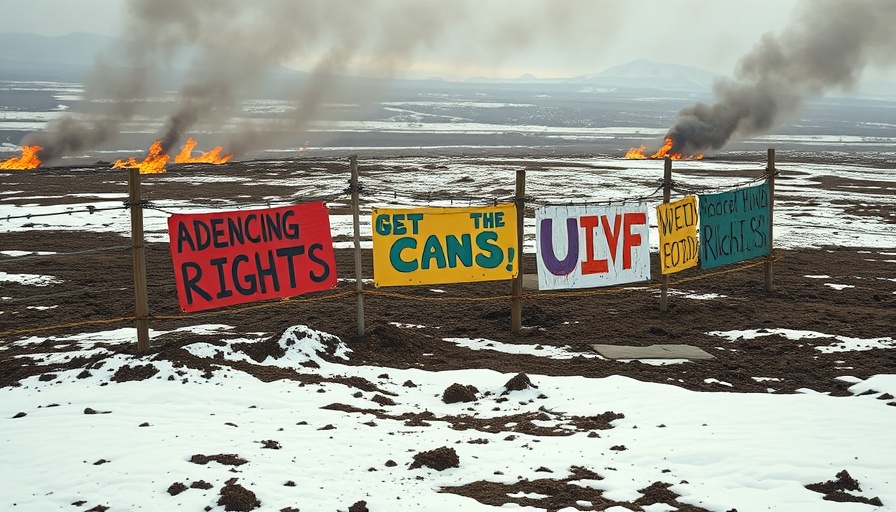
The Landmark Verdict: What It Means for Environmental Advocacy
In a significant ruling, a North Dakota jury ruled that Greenpeace must pay over $660 million to Energy Transfer due to the protests against the Dakota Access Pipeline, which took place between 2016 and 2017. This case highlights not only the complexities surrounding environmental protests but also opens a discussion about the rights of corporations versus activist organizations.
The Implications of Corporate Litigation on Activism
The lawsuit initiated by Energy Transfer, claiming defamation, disruption, and property damage, points to a growing trend where companies seek legal remedies against activist organizations. Energy Transfer's argument suggests that protests organized by Greenpeace disrupted the daily lives of local residents. Meanwhile, Greenpeace plans to appeal, asserting that this verdict is an attack on their freedom of speech.
The Role of Legal Systems in Environmental Discourse
This case brings to the forefront the issue of Strategic Lawsuits Against Public Participation (SLAPP), a legal tactic often used to intimidate critics and suppress dissent. Currently, 35 states have enacted anti-SLAPP laws designed to protect individuals and organizations from such lawsuits, yet North Dakota is not one of them. Activists argue that this ruling represents a dangerous precedent and could discourage future environmental activism as groups fear financial repercussions for voicing their concerns.
Financial Burden on Environmental Groups
Greenpeace has indicated the awarded damages would be catastrophic, overshooting their annual operating budget in the U.S. tenfold. This raises questions about the feasibility of grassroots activism when confronted with financially powerful adversaries. Given that Energy Transfer reported revenues exceeding $82 billion in 2024, the vast disparity in financial resources could inhibit the ability of smaller organizations to operate effectively.
Legal and Ethical Considerations
Various legal experts, including Rebecca Brown, president of the Center for International Environmental Law, have condemned the verdict as a misuse of legal systems to stifle dissent. Critics argue that the increasing frequency of lawsuits against activist organizations signals an attempt by corporations to control public discourse and quash legitimate grievances related to environmental issues. This scenario raises ethical questions on how legal systems can be weaponized against social movements.
Public Reaction and Future Protests
The ruling has ignited a backlash among environmental advocates and social justice activists, who are concerned that this verdict will inspire similar actions against advocacy groups across the United States. The fallout could lead to a chilling effect, discouraging protest and diminishing public discourse on pivotal issues surrounding environmental sustainability and justice.
Conclusion: A Call to Protect Activism
As environmental issues continue to escalate in importance globally, the ramifications of this case will be felt far and wide. Activists, non-profits, and concerned citizens must rally and advocate for the preservation of their voices against overwhelming corporate interests. How the system responds to this verdict—and how activists navigate the changing landscape—will define the future of environmental advocacy in America.
 Add Element
Add Element  Add Row
Add Row 



Write A Comment